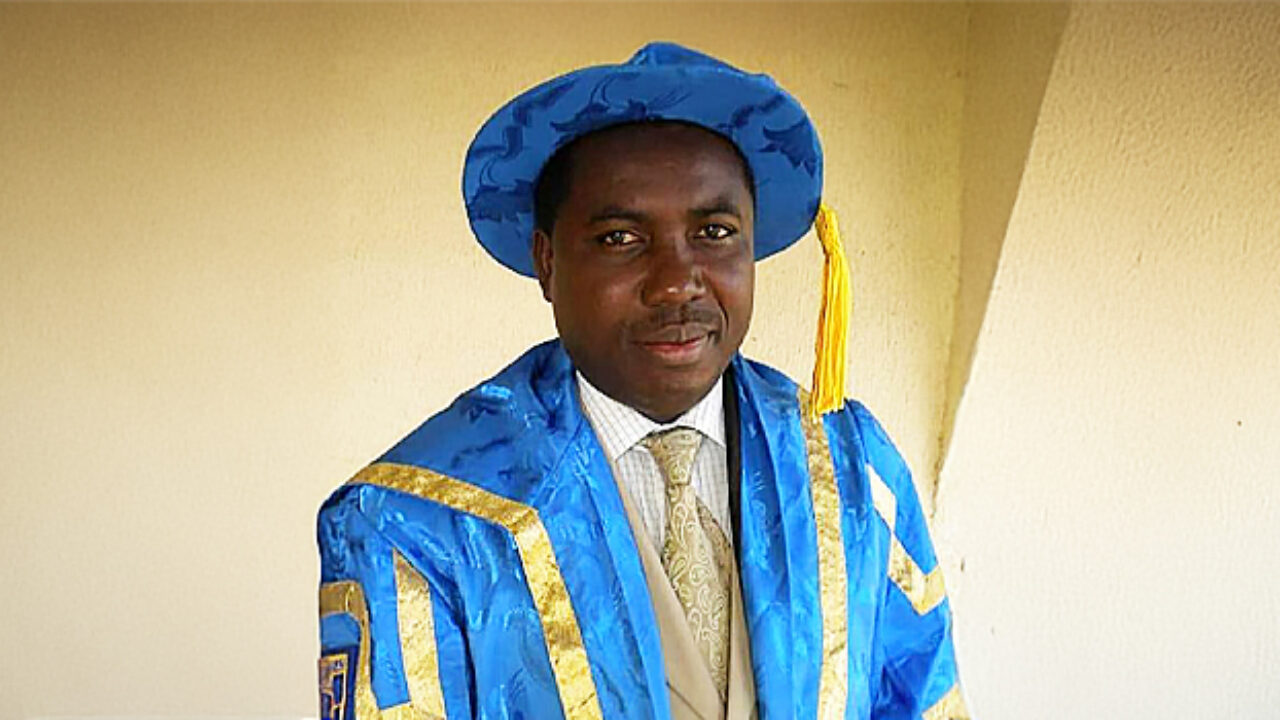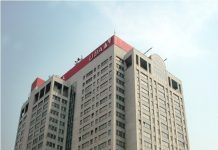Olusegun Adeniyi
Until last week Monday, I had never heard the name Femi Osibona. But within a few hours of the collapse of his Ikoyi 21-storey building in Lagos, I came to learn a great deal about the late proprietor of the ‘360 Degrees Towers’. From the ‘prophetic laying of hands’ that catapulted a man selling shirts on the streets of London to a multi-billionaire global property developer, to tales about serving as a front for Abuja politicians, religious bigotry and business sharp practices, the ‘biography’ of Osibona is now in the public arena. And it doesn’t seem to matter that everything we ‘know’ about Osibona are from single stories at a period he is no longer around to defend himself.
I never met Osibona so I have no way of disputing what has been said or written about him. For the record, I am also concerned that someone could be undertaking gigantic building projects without the necessary support systems that come with organized business structures and I find the videos of his altercations with Lagos authorities quite disturbing. However, I still believe that a little empathy and sensitivity will serve us in times like this, especially when we do not have all the facts.
Meanwhile, barely 24 hours after the Ikoyi building came down in rubble, Governor Babajide Sanwo-Olu ordered the indefinite suspension of the General Manager, Lagos State Building Control Agency (LASBCA), Gbolahan Oki. But not before Oki had made some chilling revelations. “He (Osibona) got approval for a 15-storey building and he exceeded his limit,” Oki told the News Agency of Nigeria (NAN) on the telephone, shortly after the building collapsed. “I am on ground here and the materials he used, the reinforcement, are so inferior and terrible.”
Sadly, this is a tragedy foretold. Less than three months ago, specifically on 23rd August this year, the University of Witwatersrand, South Africa, published an article by Olasunkanmi Habeeb Okunola, a Nigerian postdoctoral fellow at the Global Change Institute. In ‘Building Collapses are all too Common in Lagos. Here’s Why’, Okunola revealed that 152 buildings collapsed in Lagos between 2005 and 2020, comprised of 76.6% residential, 13% commercial and 9.4% institutional. With data from architects, builders, structural engineers, town planners, estate surveyors and valuers, Okunola wrote that “most of the buildings that collapsed are typically multi-storey buildings,” with more than 4,000 families rendered “homeless and traumatised.”
Although Sanwo-Olu has constituted the usual probe panel on the collapsed Ikoyi building, few Nigerians believe that anything will come of the exercise. In 2014, we experienced a similar (and bigger) tragedy at the Synagogue Church of All Nations (SCOAN). The Lagos Coroner’s Inquest returned a verdict that indicted the church for “criminal negligence” and recommended prosecution for the death of 116 persons. According to the Coroner’s Court, presided over by Chief Magistrate Oyetade Komolafe, the Church did not obtain the necessary permit or approval before commencing construction of the building. Of the 116 victims, 85 were South Africans, 22 Nigerians, two Beninoise and two Togolese. Six could not be identified. In typical Nigerian fashion, the ‘crime scene’ became a pilgrimage for prominent people, including then President Goodluck Jonathan, who paid solidarity visits to commiserate with the church promoter, late Pastor T.B. Joshua!However, the more bizarre incident occured two years later, in March 2016, when a five-storey building collapsed in Lekki, claiming over 30 lives. Then Governor Akinwunmi Ambode made the usual noise and dance before the state filed a six-count criminal charge against the Managing Director of Lekki Gardens, Richard Nyong and seven others. With the matter out of public glare, a ‘plea and sentence agreement’ was signed for the developer to pay N100 million to the state government and N10 million each to families of five victims, to discontinue the case. Unfortunately for the dealmakers, the trial Judge at the Ikeja Division of the state High Court was incensed when the case came before her in February last year. In addition to condemning the fact that the scandalous agreement was drawn up between the state government and the developer without representatives of the said families, Justice Sybil Nwaka faulted the amended charge for omitting criminal aspects of the original charges.
The amended charge, according to Justice Nwaka, “is talking just about the failure to obtain building permits and other building approvals. The amended charge did not contain negligence, loss of lives and others (which were in the original charge filed by the Lagos State government). Many lives were lost, breadwinners of many families,” she said. When the developer’s lawyer sought to justify the agreement, Justice Nwaka asked, “Are you saying you are paying more to the state government than the deceased families? Five families will get N50 million while the state will get N100 million?”
Justice Nwaka deserves commendation for her courageous stand. And Lagos State should be ashamed. Collecting blood money from a building promoter whose criminal negligence led to the death of innocent people is unconscionable. ‘Pay-as-you-kill’ cannot be an acceptable way to deal with the systemic problem around building and construction regulations that engender serial disasters.
I understand that land is a scarce commodity in Lagos. As I wrote in a recent column, Niger State alone is 23 times the size of Lagos in land mass. To worsen matters, the small space within Ikoyi is where Lagos Big Boys and Girls want to congregate. It is the ultimate status symbol outside ‘Banana Island’–easily the most expensive slum to be found anywhere in the world. Especially during rainy season! So, there will always be high-rise buildings in Lagos. The challenge is that due to a glaring regulatory failure, quacks are taking over the building sector. Not only in the state but all over Nigeria, to our collective detriment.
Meanwhile, I am an admirer of Governor Sanwo-Olu who is always on top of situations whenever duty calls. But the conventional wisdom that it is better to erect a fence at the top of a cliff than to build a hospital below will serve him at this period. The Ikoyi tragedy should compel a more rigorous introspection than a four-week perfunctory probe. There are several issues to examine and address. The first is about response to emergencies. One can only imagine the agony of victims trapped for hours under the fragments of concrete and mangled rods in Ikoyi. As well as the trauma experienced by their families in the intervening period. We can do better than that.
The second is the dignity of those who lost their lives. We are not the only country where people have mobile phones with cameras. But here, security personnel and first responders are more interested in taking pictures of those in distress than in helping them. Some of the gory photographs from the collapsed building are a sad commentary on the value we place on human life in Nigeria and there must be a way to stop such callous and irresponsible acts. The third and most important issue is that of regulation. Ordinarily, building construction should be managed by qualified professionals whose duty it is to ensure that everything is done in accordance with approved plans and standards while paying attention to necessary details, including the quality of materials being used.
In my September 2015 column, ‘Catalogue of Made-in-Nigeria Tragedy’, I examined some of the cheap deaths in Nigeria: Electrocution from dangling power cables, emission of carbon monoxide from ‘I-better-pass-my-neighbour’ generator fumes, heavy duty containers skidding off bridge to land on vehicles below, explosion of petrol tankers on the highway, over-the-counter sale of prescription drugs, capsizing of overcrowded canoes on waterways, incessant collapse of buildings etc. Behind these tragedies is the near absence of safety standards in most areas of public exposure in Nigeria today. We cannot continue to run our affairs like that.
On Monday, the Lagos State House of Assembly expressed concern “over the wide speculation that the (Ikoyi) building was raised to 21 floors contrary to the 15 floors approved by the Lagos State Physical Planning Permit Authority (LASPPPA) for the owner,” as well as on “the constant collapse of buildings in the state …(which) can be attributed to unqualified or unskilled builders, use of sub-standard building materials, illegal conversion or alterations to existing structures and lack of maintenance to mention a few.”
The Lagos lawmakers should go beyond passing motions. Until there are stringent laws that penalize developers who infringe on building codes and regulators who shirk their responsibility, we will continue to witness this harvest of monumental tragedy.
Echoes from Anambra guber poll
Barring another judicial abracadabra, the next Governor of Anambra State will not be decided ‘The Ben Johnson Way’. With Tuesday’s declaration of Prof Chukwuma Soludo duly elected by the Independent National Electoral Commission (INEC), I do not expect those who came 4th at the poll to upstage the former Central Bank of Nigeria (CBN) Governor with exhausting court runs that are traditionally part of election processes in Anambra State. But if there is any major take-away from the election, it is the validation of how important technology is to credible polls. Voter turn-out was low and that was reflected in the results, leaving little room to maneuver for those adept at gaming elections. By replacing the Smart Card Reader (SCR) with the Bimodal Voter Accreditation System (BVAS) device, INEC has upped the game, especially given that the much-abused incident form is now history.
Despite teething challenges, we need to support INEC in their use of technology. But I agree with the submission by CLEEN Foundation that the Commission needs to improve logistic and operational challenges associated with BVAS. “INEC result portal should be improved for more transparency and accountability through automation of the sum of votes received by political parties at the polling units; INEC should prosecute electoral offenders to serve as deterrent to others,” CLEEN recommends. “INEC should provide enough sensitive materials, such as Braille for voters with visual impairment; the commission should train and retrain electoral officers and ad-hoc staff to enable them meet with the changing needs of the electorate in Nigeria.”
I am sure the Commission will take those suggestions on board as they prepare for future elections. However, when I learned the Minister of Labour, Dr Chris Ngige, was nagging over the failure of the BVAS to accredit him for voting last Saturday, I was amused. When his own party, the ruling All Progressives Congress (APC) conducted the Anambra gubernatorial primaries where Senator Andy Uba emerged the candidate in June this year, Ngige told Nigerians that he was at his hometown of Alor waiting for the exercise to commence when he heard the announcement of result in the news!
To Soludo who must now provide the much-touted Solutions to Anambra State problems, I offer my hearty congratulation!

























































